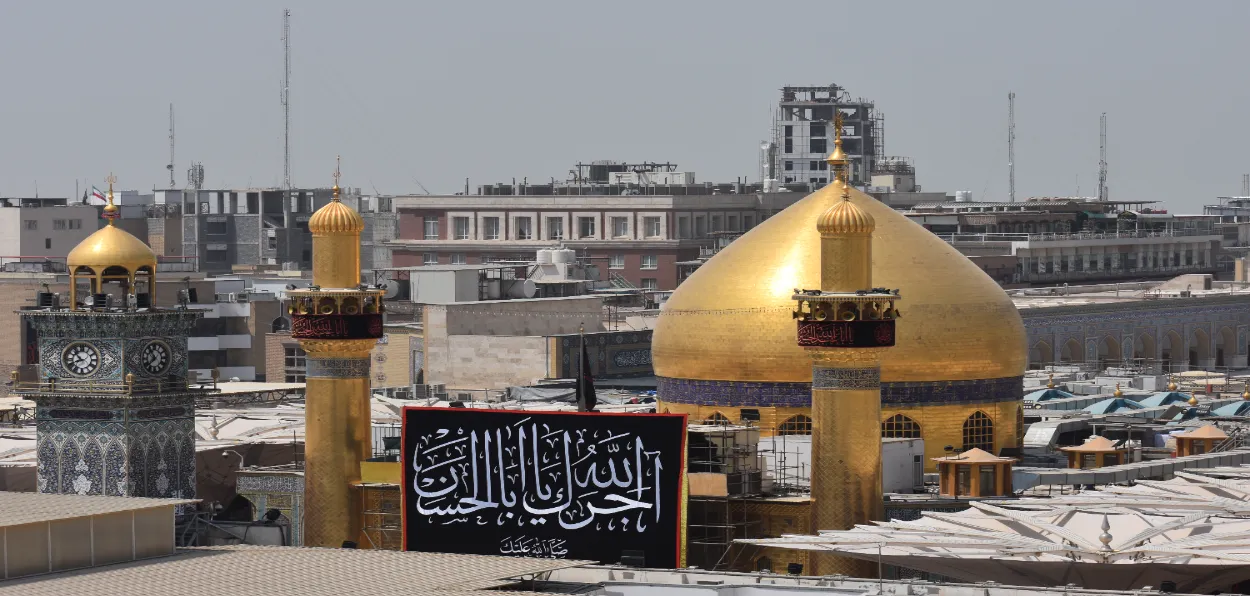
Amir Suhail Wani
Hazrat Ali ibn Abi Talib (600–661 CE) stands as one of the most influential figures in Islamic history. His life, teachings, and legacy continue to reverberate across the centuries, making him a central figure not only for Muslims but for the broader spiritual and political world.
Ali was the cousin, son-in-law, and fourth caliph of Prophet Muhammad, holding a familial and pivotal leadership role in the early Islamic community. Revered by both Sunni and Shia Muslims, Ali's profound influence reaches across religion, philosophy, governance, and justice.
Ali was born in Mecca, in modern-day Saudi Arabia, around 600 CE, into the prominent Banu Hashim clan of the Quraysh tribe. His early life is marked by an extraordinary closeness to the Prophet Muhammad. Ali’s father, Abu Talib, was the guardian of the Prophet, and from a young age, Ali was exposed to Muhammad’s teachings. He was one of the first to embrace Islam, even in its earliest days, at a time when the Prophet’s message was being met with resistance.
As a young man, Ali was recognized for his bravery, wisdom, and unwavering commitment to the faith. He fought in numerous battles, including the pivotal Battle of Badr, where his courage and valor were instrumental in securing a Muslim victory. Ali’s deep faith and his role as one of the closest companions to the Prophet made him an exemplary figure in early Islam.
After the death of Prophet Muhammad in 632 CE, the Muslim community was thrust into a leadership crisis. The succession debate led to the division of the Muslim world into two main sects: Sunni and Shia. Ali, while respected for his closeness to the Prophet, was not initially chosen as the first caliph. Instead, Abu Bakr was selected, leading to political disputes that eventually culminated in the Shia-Sunni split.
In 656 CE, after the assassination of the third caliph, Uthman ibn Affan, Ali was selected as the fourth caliph. His caliphate, however, was marked by turmoil. The Battle of the Camel and the Battle of Siffin, two major confrontations during his reign, exemplified the internal conflicts within the Islamic community over the rightful leadership of the Muslim world. Despite these challenges, Ali’s leadership was characterized by an unwavering commitment to justice, equity, and the community's welfare.
Hazrat Ali’s teachings are relevant to spiritual and political dimensions. Known for his eloquent speeches, poetry, and written letters, Ali emphasized themes of justice, equality, and piety. His famous work, Nahj al-Balagha (The Peak of Eloquence), is a collection of sermons, letters, and sayings that articulate his philosophy of governance, justice, and the nature of human existence.
Ali advocated for social justice and equal treatment of all members of society, regardless of their status. He was deeply committed to fighting oppression and injustice, often speaking out against the exploitation of the poor and marginalized.
Ali’s spirituality emphasized personal devotion to God, humility, and self-reflection. He viewed the pursuit of knowledge and wisdom as central to personal development and fulfillment. His belief in living a righteous life was grounded in both personal integrity and public service.
His leadership style was rooted in the principles of accountability and transparency. In his letters, he urged those in power to act justly and to prioritize the welfare of the people over personal or tribal interests.
Ali’s leadership left a significant imprint on Islamic political thought. His approach to governance, emphasizing justice, consultation, and the well-being of the people, became a model for future generations of Islamic rulers and thinkers. His stance against corruption and nepotism set a moral standard for leadership.
Ali is especially revered within Shia Islam, where he is regarded as the rightful successor to Prophet Muhammad. His descendants, through his sons Hasan and Husayn, are considered the Imams, and spiritual and political leaders for Shia Muslims. His martyrdom, especially that of his son Husayn at the Battle of Karbala, is a cornerstone event in Shia history and theology.
While Ali is also highly regarded in Sunni Islam, the Sunni-Shia split was primarily a political and not theological dispute. Sunni Muslims recognize Ali as the fourth caliph and one of the Prophet’s most important companions; they do not attribute the same divine leadership role to him as Shia Muslims.
ALSO READ: Peshawar's Asif Bashir who saved 44 Hajj pilgrims to be honoured on R-day
Ali’s mystical insights, especially regarding the nature of God and the inner dimensions of spirituality, have also had a profound impact on Sufism, the mystical branch of Islam. His sayings and poetry are frequently quoted in Sufi literature, and his life exemplifies the Sufi ideal of seeking God through love, humility, and service.
